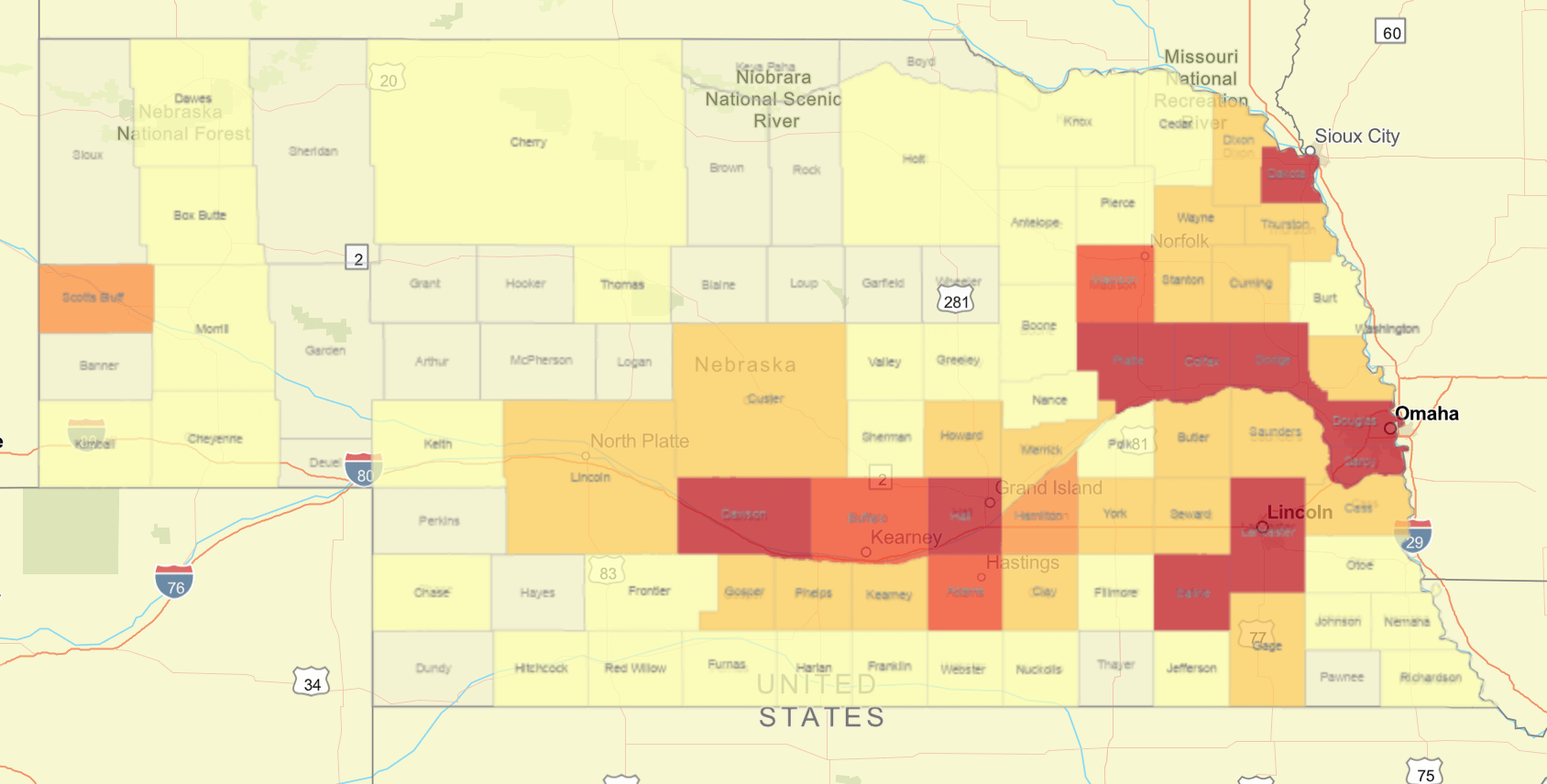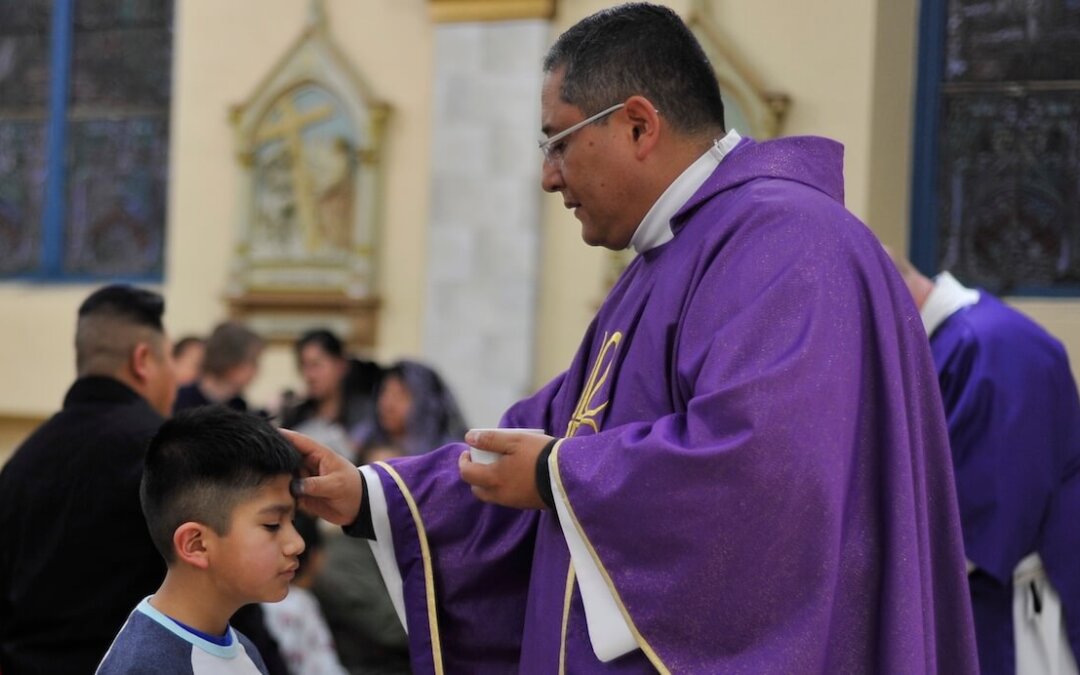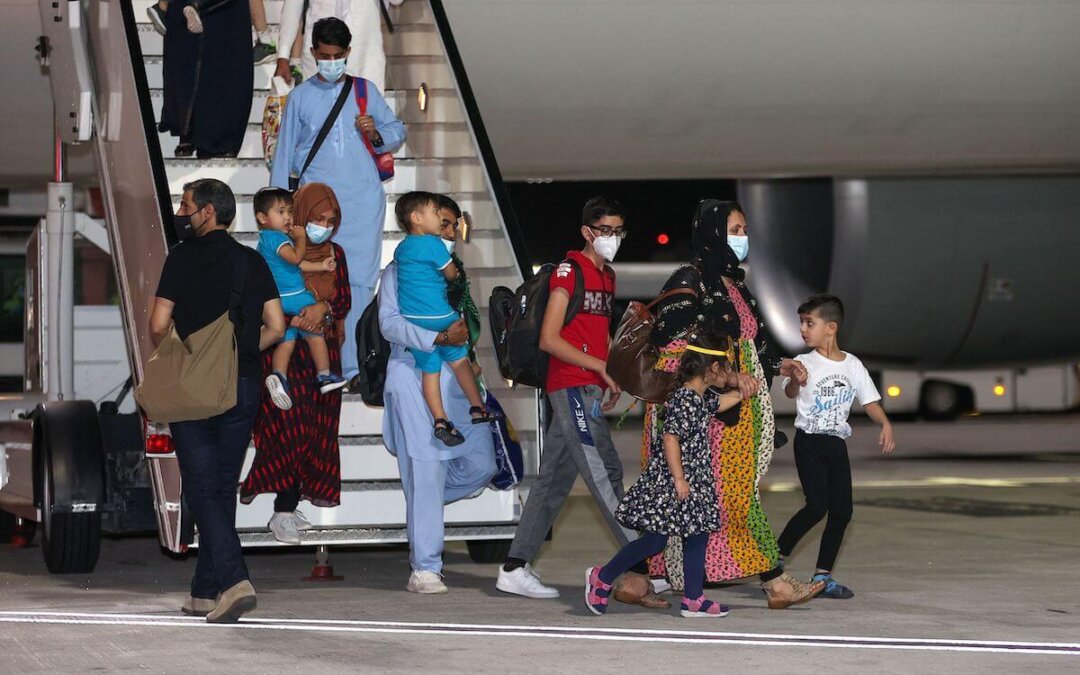
Iowa’s neighbors to the west are urging Nebraska meatpacking plants to be more transparent with positive COVID-19 cases and for better treatment to workers that are deemed essential. The fight has implications for Iowa; a massive outbreak at the Dakota City, Nebraska Tyson plant, the severity of which was kept from the public for weeks, directly drove Woodbury County to the second-highest number of infections in Iowa.
Several Facebook groups have formed to advocate, educate and raise awareness about the conditions of meatpacking plants in several Nebraska communities. What started with several sporadic grassroot efforts morphed into Solidarity With Packing Plant Workers, a Facebook group with members stretching along the Nebraska/Iowa border to Grand Island, Lexington and Crete.
The group has been organizing “Solidarity Saturday” events in each community, creating a caravan that cruises around each community and by each packing plant to show support for the essential workers. The biggest event is planned for Sunday, May 31 at the state capitol in Lincoln. Groups from all over Nebraska are expected to attend.
“Our communities are more aware of what we are trying to share,” says Yolanda Chavez-Nuncio, an organizer of the Solidarity with Packing Plant Workers group. “These workers are designated as essential and need to be appreciated and valued. We’re not asking the plants to close down, we don’t want that. We just want the workers to be protected.”
[inline-ad id=”1″]
Meatpacking Hot Spots
As of Friday night, Nebraska had 11,662 confirmed cases of COVID-19 and 147 deaths. Dawson County, home of a Tyson Plant, has 812 confirmed COVID-19 cases and seven deaths.
Erica Con is an organizer of Solidarity With Packing Plant Workers and lives in Lexington, Neb., a town “built around the local Tyson meatpacking plant.” She says her community isn’t sure how many cases have come from the plant—because the plant and state of Nebraska aren’t saying.
“All of our hot spots in Nebraska are where meatpacking plants are located, but the results aren’t specific,” Con says.
[inline-ad id=”0″]
A JBS plant is located in Hall County, where there are 1,441 confirmed COVID-19 cases and 39 deaths. Chavez-Nuncio says workers are testing positive and being sent back out to work, while colleagues aren’t being made aware that they could be working next to someone with the virus.
“These workers don’t know if they are working with a neighbor who has the virus,” Chavez-Nuncio says. “We aren’t asking anyone to violate HIPAA laws, but they should know if someone in their section has the virus or may be sick. Because then these workers are unknowingly taking the virus home to their family, which then goes into the community.”
Both Con and Chavez-Nuncio say there’s a stigma being spread by plant managers and state health officials that the spread of COVID-19 in meatpacking towns is due to the large immigrant communities and how some live with multi-generational housing.
“We have large families and family is very important to us, but we’re hearing comments about having so many people living together,” Chavez-Nuncio says. “But when people aren’t aware of who has the disease, we take that home to our families.”
[inline-ad id=”2″]
Con says one Tyson worker infected their grandparents—both who later passed away—despite them doing their part and staying home.
“It’s common for immigrant communities to have multi-generational housing, and these families are being careful,” Con says. “We’re hearing from meatpacking administrators and the department of health and human services that it’s not the plant conditions but the cultural practices of the people working at the plants. It’s just a backhanded way of blaming the immigrants.”
[inline-ad id=”3″]
Social Organizing
Earning a conversation with Republican Governor Pete Ricketts is proof that their efforts are working, Con says, but only a beginning. The Nebraska ACLU offered to provide posters and signage for the Solidarity Saturday events and the next push is to have updates on the state website in multiple languages.
“Our organizers have been pushing the health departments to get the health updates translated to different languages,” Con says. “I hope that is something that comes from this, where there’s always translation because on government websites, it’s limited. Only selective topics are in different languages.”
The language barrier has been a difficult hurdle to clear, Con says, with most of the translating coming from group members.
“We make posts in English and Spanish, and one person speaks Somalie,” Con said. “She made a 24 minutes video that was really great. We just try to find people who can translate because we want to use information in multiple languages.”
[inline-ad id=”4″]
Chavez-Nuncio says the local JBS plant in Grand Island has instituted some social distancing and dividers have been put up, in addition to taking temperatures, sanitizing and testing.
“All these things are being done, but it’s a little too late,” she says. “They need to do a better job of protecting and valuing their employees.”
by Joey Aguirre
Posted 5/25/20
Iowa Starting Line is an independently-owned progressive news outlet devoted to providing unique, insightful coverage on Iowa news and politics. We need reader support to continue operating — please donate here. Follow us on Twitter and Facebook for more coverage.
Politics

It’s official: Your boss has to give you time off to recover from childbirth or get an abortion
Originally published by The 19th In what could be a groundbreaking shift in American workplaces, most employees across the country will now have...

Trump says he’s pro-worker. His record says otherwise.
During his time on the campaign trail, Donald Trump has sought to refashion his record and image as being a pro-worker candidate—one that wants to...
Local News

No more Kum & Go? New owner Maverik of Utah retiring famous brand
Will Kum & Go have come and gone by next year? One new report claims that's the plan by the store's new owners. The Iowa-based convenience store...

Here’s a recap of the biggest headlines Iowa celebs made In 2023
For these famous Iowans, 2023 was a year of controversy, career highlights, and full-circle moments. Here’s how 2023 went for the following Iowans:...




